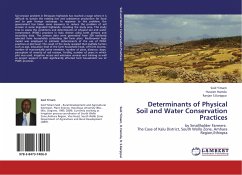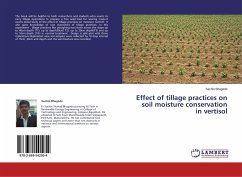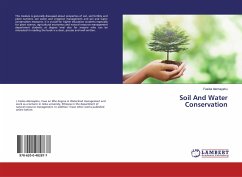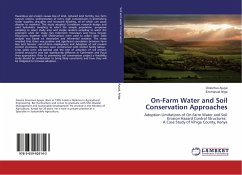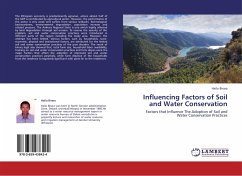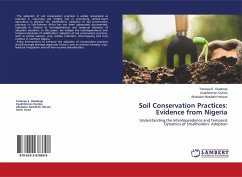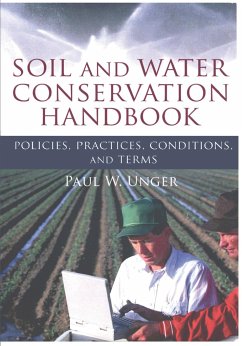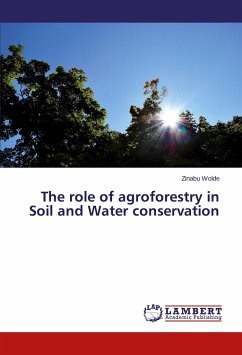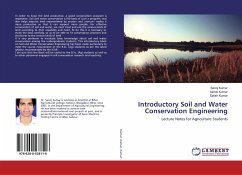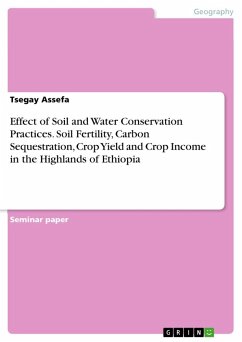
Adoption of Soil and Water Conservation Practices on Farmlands
The Case of Karita Wuha Watershed, West Belessa District, North Gondar, Ethiopia
Versandkostenfrei!
Versandfertig in 1-2 Wochen
26,99 €
inkl. MwSt.

PAYBACK Punkte
13 °P sammeln!
Land degradation is one of the major challenges in agricultural production in many parts of the world, especially in developing nations like Ethiopia. Even though a number of soil and water conservation methods were introduced to combat land degradation, adoption of these practices remains below expectations. This research was conducted in the Karita-wuha watershed, West Belessa district Ethiopia to asses farmers' response, identify SWC measures, examine correlation between improved SWC practices and major factors of SWC practice. Structured questionnaire and focus group discussion methods wer...
Land degradation is one of the major challenges in agricultural production in many parts of the world, especially in developing nations like Ethiopia. Even though a number of soil and water conservation methods were introduced to combat land degradation, adoption of these practices remains below expectations. This research was conducted in the Karita-wuha watershed, West Belessa district Ethiopia to asses farmers' response, identify SWC measures, examine correlation between improved SWC practices and major factors of SWC practice. Structured questionnaire and focus group discussion methods were used to collect the necessary information from farm households. The watershed was blocked in slope classes and then from each slope categories 50 percent of household heads who have farmland were selected using systematic random sampling technique. A total of 134 households were interviewed and several fields were visited during transect walks. Pearson correlation and Logit regression model were used for analyzing correlations among household characteristics, area, tropical livestock unit (TLU), extension support, plot characteristics and the adoption of improved SWC practices.



